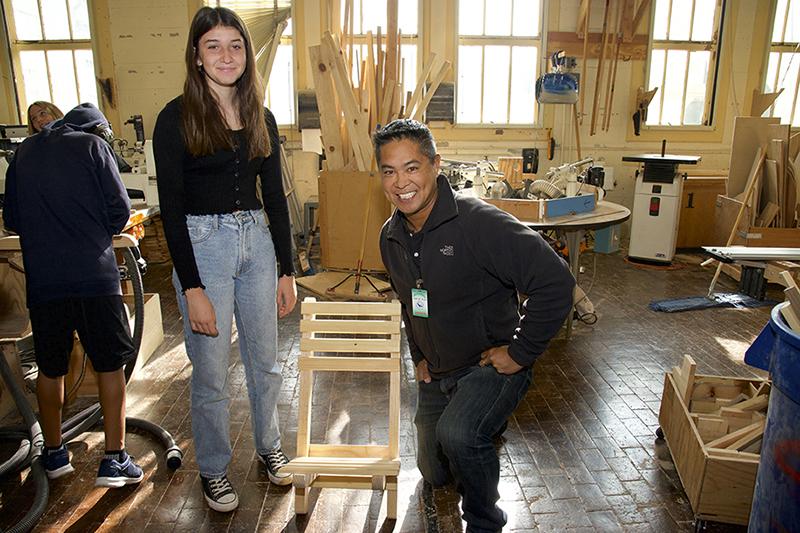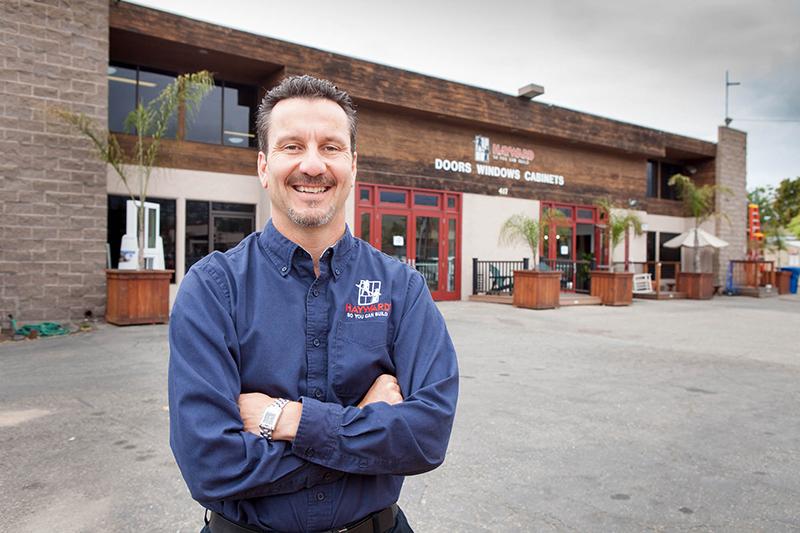Voices from Local Essential Businesses on COVID-19
During the global COVID-19 pandemic, millions of jobs were lost or put on hold. With these times of instability, the construction industry has held on strong as an essential industry. Here are the perspectives of essential business managers in the Santa Barbara community.
 Erwin Villegas, Frank Schipper Construction Co.
Erwin Villegas, Frank Schipper Construction Co.
Frank Schipper Construction Co. is an award-winning, employee-owned Commercial Construction Company located in Santa Barbara. This small local company is an essential business and is open during this global public health crisis.
Erwin Villegas is Chief Estimator and Vice President of Frank Schipper Construction Co. Erwin took time to discuss some of the challenges they face to keep work going despite social distancing, remote collaborations, and labor safety.
What is it like to be an essential business operating during this global pandemic?
Villegas: We are grateful that the construction industry is considered an essential business. While hospitals, pharmacies and emergency responders are also open and helping support the economy, businesses such as restaurants, airlines, and hotels are hurting, and laying off many of their employees.
Because this is a public health crisis, Frank Schipper Construction Co. has made some protocol changes in our daily routine. Out in the field and the office, for example, we have implemented protocol and guidelines that the Center for Disease Control recommends to ensure that we are keeping the health of our workers and those of the general public protected.
What kind of work is available during a crisis like this?
Villegas: Many of our projects are tied to the activities of the local economy. We have found that some public works/school district/hospital projects are still moving forward during a crisis like this. But we are actively working on projects for front-line local businesses considered to be essential. We are grateful to be allowed to work on their projects.
Many of our clients, however, are non-profit organizations. We have been working on several projects with them and because their income and availability to generate income have halted, our projects have been postponed and won’t start up until a future date.
While the Governor has not yet set a date when the regulations will be lifted on your industry, it is clear that FSCCo. is staying positive and finding ways to stay ready to operate at full speed. Is this approach also about a good mental attitude?
Villegas: Being an essential business during a global pandemic has its continual and daily challenges. We must remain resilient and continue hoping we can position our company correctly so that we can bounce right back once everything gets back to normal. That would mean hiring all the employees we have laid off and picking up on projects that were currently halted.
 Paulo Sitolini, Hayward Lumber
Paulo Sitolini, Hayward Lumber
Hayward Lumber prides itself on providing the highest quality lumber and supplies for professional builders and DIY homeowners alike. With a local branch in the heart of Santa Barbara, Hayward Lumber says loyal customers are the reason for its long history of success. Hayward Lumber is an essential business during the global pandemic and currently provides products and services within updated hours of operation.
Paulo Sitolini, COO of Hayward Lumber and regular TRADART volunteer, kindly took the time to discuss where he sees the lumber industry heading in our modern world.
How does it feel to have been and continue to be a part of growing the importance of Woodshop programs for the Santa Barbara Unified School District?
Sitolini: It is an honor and a privilege to be able to help with this important program that is so desperately needed in our community. We love the work that TRADART is doing and we are very happy to be a small part of it.
Where did you start your work in lumberyard management?
Sitolini: I became a manager in a lumberyard in Las Vegas and was recruited by Hayward Lumber in 2001. I came to SB in 2006 as a Market Manager running our two lumberyards in the area (SB and Goleta) and became involved with TRADART shortly after that. In 2014 I became the COO for the company.
What is the future of your industry? Are rough carpentry and fresh lumber products here to stay?
Sitolini: The future is solid and bright. Lumber is the only building material that is sustainable, easy to use, replenishable, has a small carbon footprint to extract, and sequester carbon for many years. We will need carpenters for many years to come!
In your view, where are the building and construction trades headed?
Sitolini: The trend is for buildings to be more standardized and move into the factories. There is a “race” to see which new method will capture the biggest part of the market. Panels, pre-cut, or modules are the three competing categories, but none of them will eliminate the need for carpenters in the field. Especially for custom homes. Those three methods work well for multifamily and track housing, but are many years away from custom building.
What do you hope for regarding the future of lumber management?
Sitolini: Despite many ups and downs, lumberyards are thriving all across America, and management is in high demand. Many people don’t think of lumberyards as a place to build a career, yet many of our folks in management only have a high school diploma or a 4-year degree like myself.
What advice do you want to share with students about this career choice?
Sitolini: I graduated in international business; being a lumberyard manager was the last thing in my mind. I started in the receiving department as a trainee and never left. I love the people in the industry, they are the salt of the earth; the work we do, we build people’s homes; the ability to be inside and outside, one day I am looking at budgets and numbers and the next I might be on a truck making a delivery to a customer I have not seen in a while. There are very few jobs out there that offer this amazing variety and versatility. I love it!
Would you like to say something to our students about exploring the range of professions available to them, within the entire Building and Construction Pathway?
Sitolini: A career in the construction industry will be very fulfilling and rewarding if you are willing to work hard and embrace it. I am amazed by how many of my co-workers from long ago are still in the industry. Many of us started as part-time workers and made a very successful career out of it with just some hard work and dedication.
~~~
Thank you, Erwin and Paulo, for your ingenuity as leaders in your industries and for invaluable insight during these exceptionally rough and uncharted times.